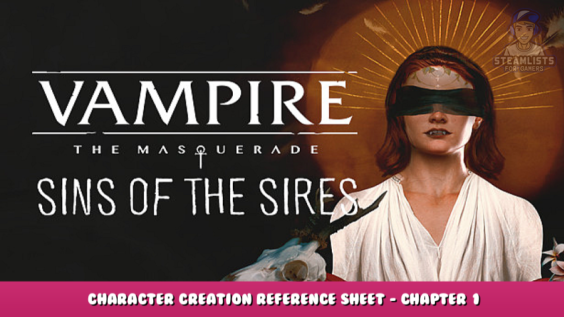
Reference Sheets and an in-depth overview of how character creation works in Chapter 1.
Introduction
For whatever reason, Sins of the Sires hides what stats are allocated in character creation when picking options. Character creation itself is spread out over Chapter 1 in several disjointed sections, which also makes it sometimes difficult to tell when stats are allocated. After Chapter 1, the Personality traits will still change to reflect options, but nowhere near as much as in Chapter 1. Skills are never changed after Chapter 1; you are stuck with them for the rest of the game. Disciplines also cannot be changed (except in one instance if you play your cards right).
The overarching aspect of stats in Sins of the Sire is that they are percentages rather than whole numbers. More than that, adding points to the percentages has diminishing returns. This functionally means that the more times a stat is increased in character creation, the fewer points will be allocated to the stat and it will plateau. It is impossible to get any stat to 100% and generally speaking, there doesn’t seem to be much value in increasing stats that are over 70%. It is often better to increase stats that are lower than 70% than to try to push a stat too much higher if it is over 70% already.
All-in-One Reference Sheet
This has all the stat gains on it in the order stats are decided except for Disciplines and Clans as those don’t really fit well into it. For a more in-depth look at what all the stats mean, keep reading.
Skills
Skills make up the bulk of stat checks in SotS. Options will indicate how likely it is to pass the skill checks associated with them by adding in words like “try too” or “a lie” if the associated skill isn’t high enough to pass a check. If an option sounds like it’s confident the skill check will be passed, then it probably will be.
Skills can roughly be split into four groups: Combat Skills (Athletics, Fight, Stealth), People Skills (Etiquette, Intimidation, Learned, Persuasion), General Use (Awareness, Composure) and Background Specific (Streetwise, Tech). Background Skills are easily the “dump skills”. All the other skills can make those skills obsolete and none of the Background Specific skills are used to determine endings. General Use skills are used in both combat situations and interpersonal communication, so taking some points in one of them is not a bad investment.
Combat Skills and People Skills are the skills used the most. Having only one very high skill in those categories is usually not enough to successful pass a lot of the checks without the support of another of the skills in the same category. It’s hard to make good use of high Fight if there’s no Stealth or Athletics to help it. Similarly, high Learned without some Persuasion or Intimidation isn’t useful either. Combat Skills are not inherently better than People Skills; that will depend on what ending routes are taken. Some route will require good Combat Skills, others need to have fight checks fail to happen and others work the best with high People Skills. It all depends on what type of ending is being aimed for.
Skills themselves all start at 30%. Each option will add points to that base 30%. If a stat is above 30%, then it will receive less than the full amount. Because of this, points are given as a range rather than in discrete values; the higher a skill is before more points are added, the smaller the number of points added will be.
Background and Hobbies
These are the only choice that will give you more than one skill at a time. They also are likely the largest stat increases gotten in the entire character creation process. Unless Background and Hobby double up on skills, none of the skills will be over the 70% threshold and having sure checks on some skills will require more points to be invested elsewhere.
The background titles are just fluff and don’t matter at all for the story. All Backgrounds and Hobbies can finish the game with a good or decent ending so long as complementary skills are picked later on.
Door Opening Method, Building Navigation Style and Price Increase Style
The item gotten from opening the door can be used later… but other skill checks are able to cover not having the “right item” in just about any situation. Other than that, these are straightforward choices and are part of why Background matters so little for making decent characters build; most skills that are really needed can be picked up here by any background.
Predator Type
This sets a few things, including stats. The style of feeding doesn’t matter too much as all feeding is scripted. The Humanity Score doesn’t seem to do much in the story either. These are the last skill points gotten in the game, so make them count.
Personality Traits and Convictions
Like Skills, Personality Traits are percentages. Unlike Skills, Personality Traits start at 50% and can have more points added on either side of the various bars, shifting the values as the story progresses. They also suffer from diminishing returns, but the inverse also applies. This means that if a trait is high, and then points for the *opposite* trait are added, then “extra” points for that opposite trait get added on as well. This can cause fairly significant “personality shifts” over the course of SotS as a result.
The traits themselves seem to be mostly tonal changes at different points in the narrative. There are no skill checks for personality traits as far as I have managed to find. Closely related to personality traits are Convictions, and you choose both at the same time. Like Personality traits, these cause tonal shifts rather than locking you out of options. Because the personality traits only cause tonal shifts, this can let pretty crazy situations come up… like someone with high Rebel siding with the Establishment or vice-versa…
This is also easily the most glitchiest part of the character creation process. Several traits are… surprisingly one-sided in terms of how easy it is to raise them in character creation, and several conviction options don’t change personality traits at all even though it seems like they should. More on these weird glitches later.
Unlife PoV and First Round of Convictions
Unlife PoV does exactly what it says it does and in a lot of ways sets the tone for what the rest of the Convictions will be. And this is where the traits get complicated and the glitches start happening…
In some ways, you pick what your first round of Convictions can be back when you pick who your family member is. Different family members will let you have the option of picking a conviction particular to that family member. When this conviction is picked (if it’s picked at all) will determine if it gives trait points or not. In the First Round it will, in the Second Round it won’t. The “family” conviction will also give a special conviction on the character sheet.
Picking any other conviction in the 1st Round will not record what the conviction was. However, those other convictions will still give trait points. Further complicating this is that picking different Unlife PoVs will add additional convictions to the list along with the “family” conviction. Oddly, these convictions will not give a conviction on the character sheet. And they give different traits depending on whether the Unlife PoV added Self-Serving or Self-Punishing trait points.
Life PoV and Second Round of Convictions
If the first set of Personality Traits felt oddly weighted when it came to trait points, this one is even worse. And has even worse glitches. The “Life PoV” answers still give points like normal at least.
But the Second Round of Convictions… Depending on what “Life PoV” is picked, no trait change might happen. Or a trait change might happen if the right one “told” option is picked and the right Convictions. Furthermore… if a “family” Conviction was picked in the First Round, then whatever conviction is picked this round will give a Conviction on the Character Sheet. If it wasn’t, then any non-family Conviction picked this round won’t either. Picking a “family” conviction this round if it wasn’t picked last round will still give the conviction, but no points.
Feelings About Vole
The last character trait change in Chapter 1… and finally one that works as intended. There are no glitches here, just some very odd ranges based on all the weird values gotten earlier.
Disciplines and Clans
Stat-wise, Disciplines aren’t *that* important. They can compensate for some lower skills, but they do this at the cost of Hunger which isn’t always desirable. And some Disciplines can’t really make up for a lack of skills anyway. It’s a lot more stable long-term to pick skills that match what ending is being aimed for.
Story-wise, the first two Disciplines picked are the biggest decisions made in character creation. They are what determine what Clan your character is which majorly affects what kind of ending you can try to get.
With seven Disciplines to pick from, this makes for twenty-one combinations of Disciplines. However, out of those twenty-one combinations, only four of them give specific clans. The other combinations all are the same clan no matter what the individual Disciplines are.
For the players who don’t want spoilers for what those clans are, here are the Discipline pairings that give specific clans in no particular order.
Fortitude, Dominate
Auspex, Dominate
Auspex, Obfuscate
Cerlity, Obfuscate
For those of you who do want to know the Clan Specifics, here are the Discipline pairings with the Clans they give.
Fortitude, Dominate - Ventrue
Auspex, Dominate - Tremere
Auspex, Obfuscate - Malkavian
Cerlity, Obfuscate - Banu Haqim
Any other pairing - Thin-Blood
One of the biggest take-aways from these lists is that none of the Disciplines that are useful in combat are part of clans. And there are several endings that will require combat skills to resolve successfully. So plan the third and four Disciplines and skills with that in mind.
Conclusion
Hopefully, this helps people set up their characters better so skill checks are easier to pass.
If anyone has noticed anything different in their character creation process, please let me know!
I hope you enjoy the Guide we share about Vampire: The Masquerade — Sins of the Sires – Character Creation Reference Sheet – Chapter 1; if you think we forget to add or we should add more information, please let us know via commenting below! See you soon!
- All Vampire: The Masquerade — Sins of the Sires Posts List

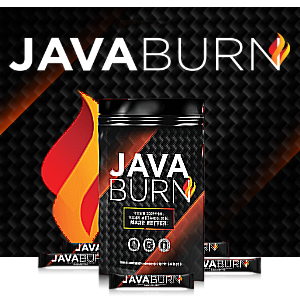
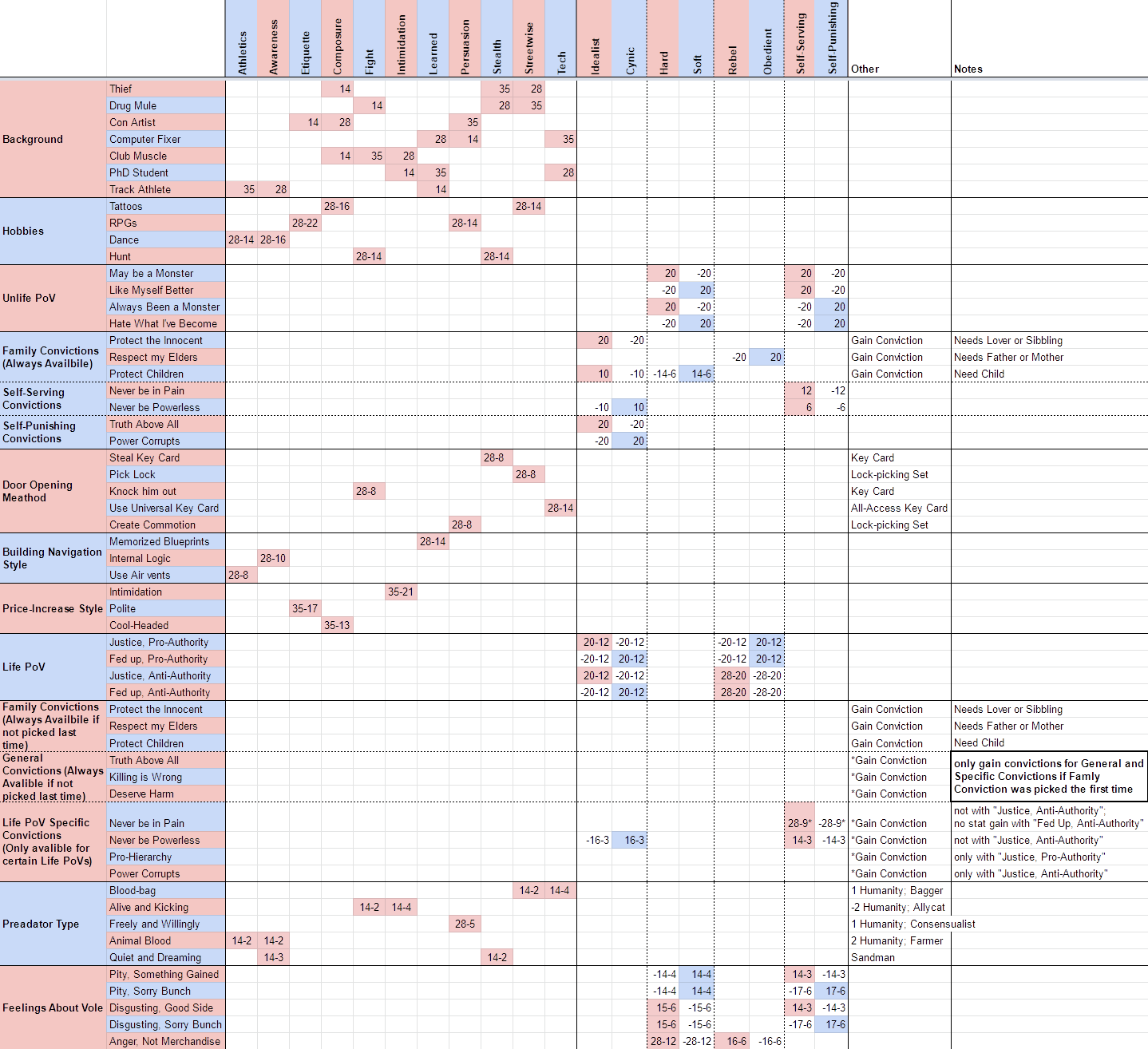
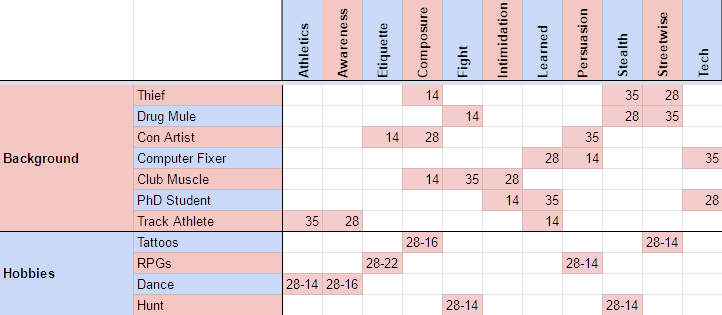
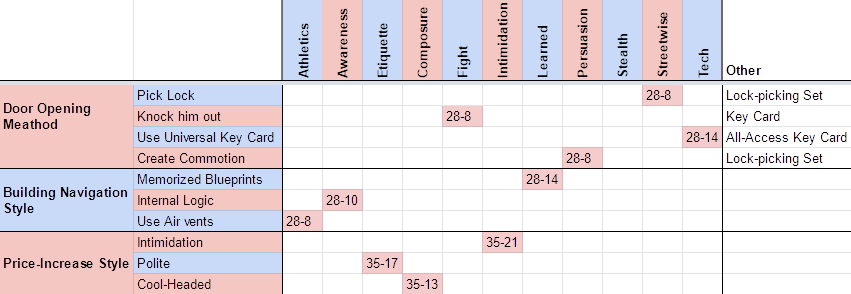

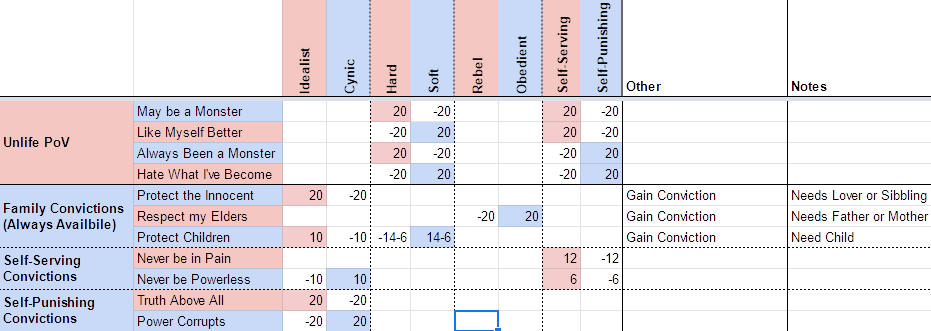
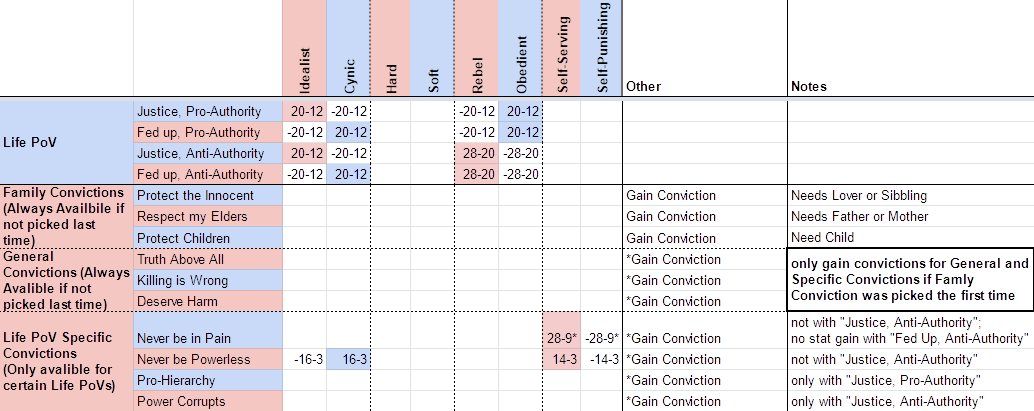

Leave a Reply